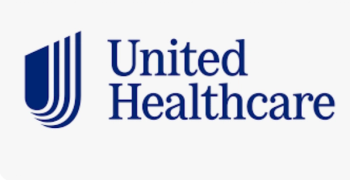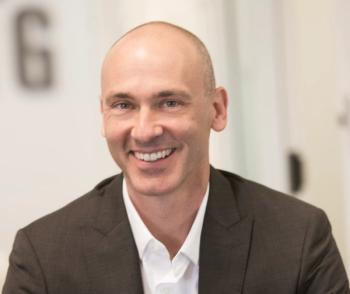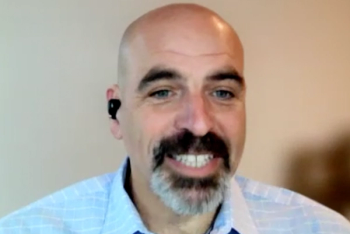
Attracting and retaining talent for a new model
With a more consumer-oriented health insurance industry evolving amidst landmark regulatory and technological changes, insurance plans need skills that have never before been demanded.
With a more consumer-oriented health insurance industry evolving amidst landmark regulatory and technological changes, insurance plans need skills that have never before been demanded.
“Healthcare is looking to those employers who have a strong brand and excellent reputation for understanding the needs and wants of their customers; whether they be in retail, finance, hospitality, automotive or a whole host of other industries,” notes Lu Miller, senior vice president/principal at the healthcare executive recruiting firm Morgan Consulting Resources.
The new approach in many cases will require the establishment of C-level executive positions such as chief of retail operations, chief customer experience officer or chief quality officer, notes executive recruiter Miller. It also means new responsibilities for top executives, such as the plan’s chief information officer or chief compliance officer.
New leadership
Health plans are now recruiting outside of the industry and competing with the likes of Disney, Google, and Southwest Airlines for top executive talent, says Jay D’Aprile, senior vice president for health insurance industry recruiting at Chicago-based Slayton Search Partners.
D’Aprile, whose firm specializes in cross-industry executive searches, says a number of the nation’s largest health plans have recently brought in new executives from Ford, Wal-Mart and American Express, to re-orient their marketing and customer service operations.
But enticing execs to sign onto a health plan can be a challenge. Too often, health insurance companies seem stodgy, boring or worse, D’Aprile notes. For many, the mention of a health plan may conjure up visions of heartless autocrats finding ways to deny care for needy patients.
Related:
In addition, few executives outside of the health care industry fully understand the transformation that healthcare is now undergoing to increase care access, improve quality and reduce costs, D’Aprile notes.
The key to attracting top marketing talent, say Miller and D’Aprile, lies in successfully explaining the true mission of the health plan and the challenges it faces.
”The person developing a health plan’s B-to-C [business to consumer] initiative faces enormous challenges. This is three-dimensional chess. It is very complex. There is marketing, technology, regulation, privacy laws, analytics, statistics,” says D’Aprile.
He recommends that clients look for a candidate who thrives on complexity and challenges. “For executives seeking to change the world, the health insurance industry today can offer a once-in-a-lifetime opportunity.”
“Find executives who are mission-driven,” D’Aprile says. “Interest them in the mission of the health insurance plan and they will want to be part of it.”
“Health insurance is a good thing,” D’Aprile continues. “It makes people’s lives better. Health insurance plans really care about their members. That is not a message, unfortunately, that health plans are getting out there. Explain the mission of the health plan and how the [prospective recruit] can play a role in helping people.”
Miller emphasizes the need for clarity and consistency among current plan leadership as key factors in finding the right hires for newly-established positions such as chief quality officer.
“Plans need to ask themselves, ‘What is the goal with this hire, what talent is the organization really looking for in creating a new role or redefining the responsibilities of established positions such as CIO under a consumer direct marketing strategy?’” says Miller.
“Make sure your internal team is on the same page. Get input from your internal key stakeholders, those leaders who will work with or rely on this position. It is important to make sure you are looking for the candidate who has the right experience and capabilities so they will have all the skills necessary for a successful consumer-oriented program.”
Next: Attracting staff
Attracting staff
As they begin to realign their organizational structure, top executives at most health plans are quickly realizing that their present workforce lacks the capabilities and skills necessary to operate in the new consumer-oriented environment, warns Deloitte’s recent
Particularly in demand over the coming years will be personnel with product development, pricing and data analytics capabilities, the report suggests. So will technical personnel with expertise in interactive and customized technologies like social media and mobile applications, bio monitoring, and remote monitoring communications that enable telemedicine.
Analytics staff who can assist in developing insight into customers’ needs and preferences to distinguish how plans engage the consumer will be particularly important, notes Paul Lambdin, Insurance Exchanges and Consumer Operations practice leader for health plans at Deloitte Consulting LLP.
Related:
As with top executive talent, health plans may be competing with employers like Google or Apple for highly prized programing and analytics personnel, as well as good mid-to entry-level technical, marketing and customer relations personnel, Miller notes. Many of the best candidates may be Millennials or Gen Xers with little interest in--or even an unfavorable opinion of--health insurance plans.
Again, Miller believes, effectively conveying a health insurance plan’s true mission is crucial. Polling consistently shows Millennials and Gen Xers place an emphasis on work that is interesting and meaningful. In addition, they’re not overly loyal to employers and not hesitant to seek other employment if work becomes dull. To attract top technical and customer service staff, Miller suggests that plans emphasize, in recruitment material, the civic, charitable, and wellness initiatives they sponsor.
Related:
Ambassadors are another effective recruitment strategy, Miller says. Employees who have sincere enthusiasm for a health plan’s work can often relate well to young prospective hires. She advises human resource officers to identify such individuals within the ranks of health plan employees and utilize them as advisors for potential recruits at job fairs and college campus visits. They can also be effective in providing tours of health plan offices for potential recruits or new hires.
Employee development programs have also proven effective in improving customer relations, the Deloitte report notes. Drawing considerable attention over recent years has been a Walgreens program to improve customer service, amid increasing competition from mail order and Internet retailers.
Under the program, the nation’s largest drug store chain provided district managers with additional support to improve engagement with employees and customers. In addition to meeting customer engagement objectives, the program helped identify managers who were early adopters and quick to adapt to new retail environments, the company reports.
Bob Pieper is a freelance healthcare writer based in St. Louis, Missouri.
Newsletter
Get the latest industry news, event updates, and more from Managed healthcare Executive.

























